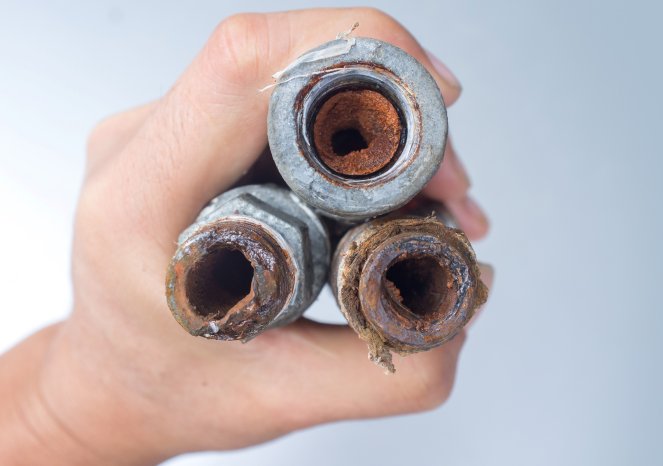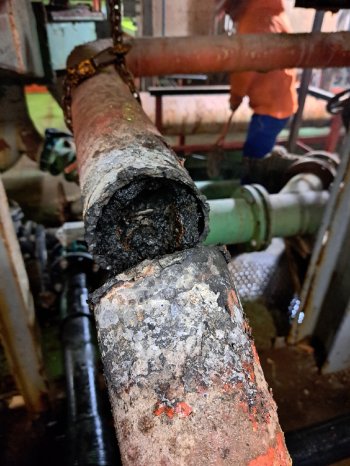This can lead to complete blockages of pipes, resulting in expensive consequential damage - even to the bursting of the pipe. The more advanced an incrustation is, the more difficult it is to remove. The damage is inevitably pre-programmed. It is therefore important to check pipe systems regularly and, if necessary, have them replaced before it is too late.
Incrustation refers to deposits that form inside water pipes. Metallic pipe systems are particularly affected, as they are more susceptible to deposits due to their surface properties. These can remain undetected for a long time and then lead to pipe breakage or leaks due to the increasing pressure in the pipe system. In the worst case, this damage can lead to complete production stoppages in industrial plants and bring operations to a standstill in hotels, hospitals, or other large buildings.
How does incrustation occur in water pipes?
The formation of incrustations is complex and depends on various factors. The most common cause of incrustation are minerals, such as magnesium and calcium, which are present in the water. The hardness of the water depends on the region and varies depending on the occurrence of limestone, dolomite rock or gypsum rock. As long as the deposit remains thin, like a layer of lime on the pipe wall, there is no danger. However, if the incrustation in the pipe increases unnoticed for a long time, expensive consequential damage can occur.
If there is a constant drop in pressure in the systems or the consumers, incrustation may be the cause. Limescale deposits at the tapping points can also be an indication that pipes are calcified.
Why are plastic pipes hardly affected by incrustation?
Due to their smooth surface and chemical resistance, plastic pipes are hardly susceptible to deposits or incrustations compared to metal pipes. The smooth surface minimises the adhesion of particles which prevents deposits in the pipes. In addition, plastics do not incrust, as they are not electrically conductive, so the ions or particles dissolved in the water do not adhere to the pipe wall.
Another advantage of plastic pipes is that they are corrosion resistant. With metallic systems, corrosion damage can occur in connection with deposits. Plastic pipes are also more resistant to chemical substances, which can be used for hygienic pipe cleaning, for example, without attacking the pipe wall.
An example from practice
Incrustation and sludge formation had taken their toll on the steel pipes of an industrial company. A crystal crust had formed on the inside, which caused the inner diameter of the pipes to slowly grow too large due to corrosion. The inner diameter of the DN 100 steel pipes had been reduced by almost half. The pipes were replaced with aquatherm products. Thanks to the plastic polypropylene, these are resistant to corrosion and incrustation.
Under the name fusiolen® aquatherm develops and produces innovative polypropylene materials. These are characterised, among other things, by their special high-heat and extraction stability. The physical and chemical properties are adapted to the special requirements of the respective field of application. Due to the good welding properties, the pipe and fitting merge into a homogeneous, materially bonded unit.


